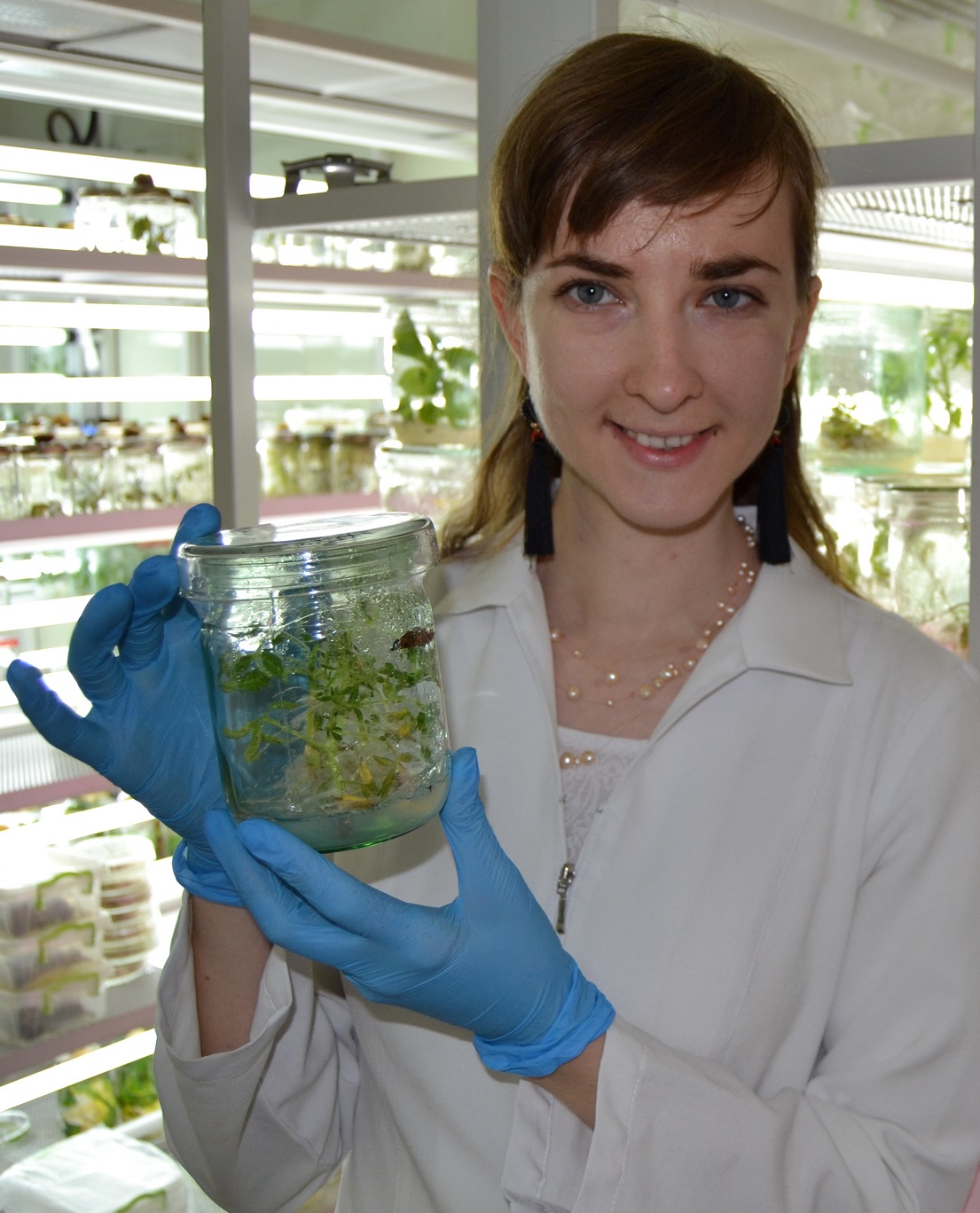Improving the properties of commercially important crops
I am a young scientist from the Institute of Cell Biology and Genetic Engineering engaged in genetic engineering of plants. My research focuses on Amaranthus, Physalis, and Solanum lucopersicum, which are used in food (it has high nutritional value and unique amino acid composition), medicine, cosmetics, light industry, and agriculture as forage plants. The seeds of Amaranth contain up to 10% of squalene. Squalene has antitumor and wound healing effects in the human organism. Compounds of Physalis (physalins) and Solanum lycopersicum (lycopene) also have antitumor effect.
The aim of my work is to develop and optimize the conditions for obtaining recombinant genes and proteins of human interferon alpha 2b in plants of Amaranthus caudatus, Physalis peruviana, and Solanum lycopersicum which can be used as "plant vaccines" in medicine. Industrially synthesized interferon is used to treat viral infections and various types of tumors.
Genetic engineering of plants for the purpose of obtaining medicinal substances is a promising direction in science. For example, in Ukraine there are national programs dealing with the development of “plant vaccines”.
The results of my experiments will have practical and scientific value - it will be possible in the future to develop a medical product with antiviral activity based on plant raw materials, the source of which will be the stems, grain and leaves of amaranths; stems, leaves and fruits of Physalis; leaves and fruits of tomatoes.
At the moment, I have already obtained transgenic amaranth plants with genetic resistance to phosphinothricin, transgenic roots of Amaranthus with selective genes and with human interferon gene, and transgenic roots of Physalis with selective and reporter genes. I am also growing three generations of transgenic plants of tomatoes with human interferon gene, confirmed antiviral activity of protein extracts with interferon obtained from fruits and leaves of first generation of tomatoes.
The next step of my research will be to conduct studies in mice on the antiviral effect of the fruits of transgenic tomatoes. Also in the very near future I would like to conduct research on human volunteers and possibly patent the resulting transgenic raw material as an edible plant vaccine. The source of future funding may be investors who work with transgenic plants and transgenic products.
- Olha Yaroshko, Research Assistant, Institute of Cell Biology and Genetic Engineering (ICBGE) of NAS of Ukraine
Olha is the recipient of a small research grant from the US-Ukraine Foundation Biotech Initiative

